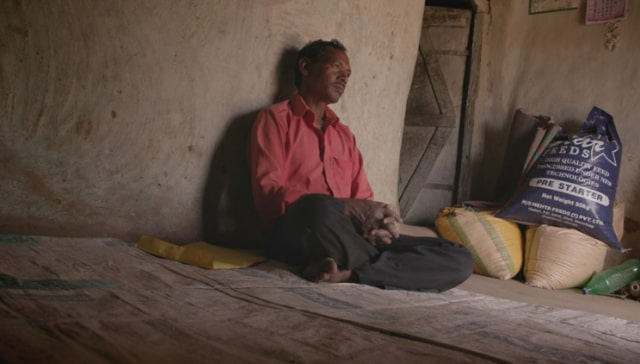To Kill a Tiger, a documentary film by Indo-Canadian filmmaker Nisha Pahuja, premiered at the Toronto International Film Festival this year. The timing could not have been more horribly apt. The feature-length documentary, which follows a rural Jharkhand family’s quest for justice after a teenage girl is gang-raped, played out in the aftermath of two recent, gruesome incidents in the space of a fortnight that ended the lives of two teenage girls in the state, one burnt by her stalker and the second raped and hanged from a tree. The documentary won an Amplify Voices Award, one of three given to emerging filmmakers from under-represented communities. In an interview at TIFF, Pahuja says this was not actually the film she originally set out to make eight years ago. While researching a film on an NGO’s programme that tried to teach men in Jharkhand about the ill effects of toxic masculinity, she met Ranjit, a small farmer whose 13-year-old daughter had been gang-raped by three youths after a family wedding in 2017. Pahuja began to document the case as part of her film, but once she sat down to edit at the end of the three-and-a-half-year-long shoot, she became convinced this was a stronger story on its own. It was an exceptional case because the victim, “J”, refused to back down despite periods of pessimism and self-doubt, wondering if she had indeed brought it on herself as had been suggested by many in her village. We hear the teenager recount details of the assault when she had been asked to stay back after the wedding by one of her relatives and his two friends, after which they dragged her to a nearby wooded area and took turns raping her.
Pahuja started interviewing “J” within a couple of weeks of the incident, but by then, she is already trying to return to her normal life of a schoolgirl, with bright ribbons in her hair and nail polish on her fingernails. The filmmaker had planned to mask her identity during post-production. “I didn’t want to hide her during filming in a way that made her feel the shame was on her, reinforcing the stigma,” says Pahuja. But the girl wanted to be identified fully in the film. One of the most harrowing scenes in the documentary is the one where “J” is rehearsing her testimony in front of her family on the eve of her court appearance. Stony-faced, she recites passages describing how her rapists pulled down their trousers, lifted up her skirt and then pulled down her panties and raped her, even as her father gently prompts and corrects her account. “I think the reason she was so special was that she was supported by her parents, especially her father, and that really emboldens you,” says Pahuja. Ranjit was equally exceptional as he was determined to get justice for his daughter against all odds, facing official apathy, hostility from fellow villagers and pressure from all sides for a “compromise” that involved his daughter marrying one of her rapists. His simple dignity and periodic despair are both evident in the film. His wife is initially quiet and withdrawn, but she grows increasingly assertive, at one point urging Ranjit on when he seems to waver. While the villagers become more and more hostile to the film crew as both the case and filming progress, Pahuja made sure to ask Ranjit if he wanted to continue cooperating but realized he was working to a plan. “Ranjit is really smart,” she recalls. “We know that the justice system doesn’t really work for the poor in India so he understood very quickly that having a crew, having the media behind him was going to ensure that his case was taken seriously.” Pahuja says she also found the local officials quite ready to talk, and the conversations with them add greatly to the impact of the film. There is the swaggering Ward Member, a combative defence lawyer, and the softly encouraging public prosecutor who plods on despite being deluged with pending cases. The Ward Member is among those urging Ranjit to compromise, citing the welfare of the village, but he shows no animosity towards the crew. Pahuja says, “Of course, we were on opposite sides of the issue, but I understood the complexity of what he was talking about. We never judged him or any of the villagers for the beliefs that they hold. When you want to change something, telling someone that they are wrong is never the solution, it’s engagement.” As the victim was a minor, this became a POCSO case, and the trial was relatively speedy, delivering a judgment in 18 months. Regardless of the outcome of the case, which is not being revealed in this article, the process itself is cause for optimism on many fronts – the victim’s brave determination, her parents’ steadfast support and even the prosecutor’s steady commitment to the case. To Kill a Tiger provides a timely look at the dynamics of a village in Jharkhand, which could be similar to any rural region in India. While a steady stream of cases of violence against girls even today may prompt a discouraging conclusion that not much has changed, the story of Ranjit’s daughter is a pointer to how things could indeed change. Her trauma not only made “J” determined to bring her attackers to justice, but also sparked her aspiration to become a police officer and perhaps deliver justice to another victim herself. That’s change. Read all the Latest News , Trending News , Cricket News , Bollywood News , India News and Entertainment News here. Follow us on Facebook, Twitter and Instagram.


)
)
)
)
)
)
)
)
)



